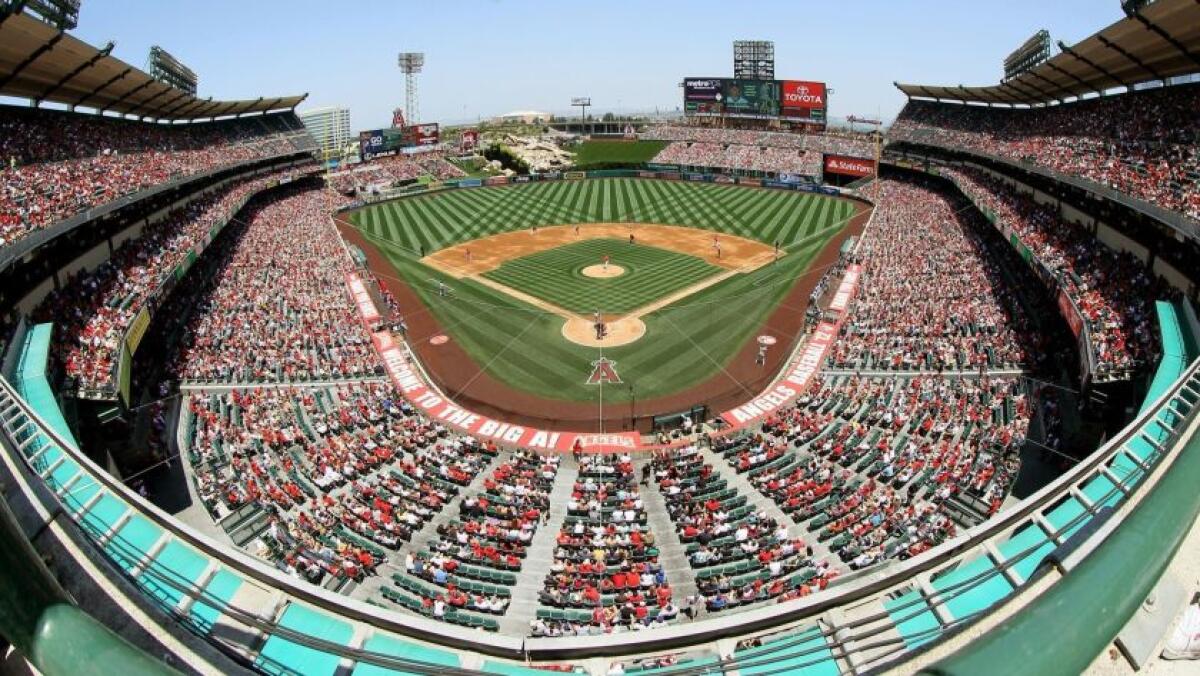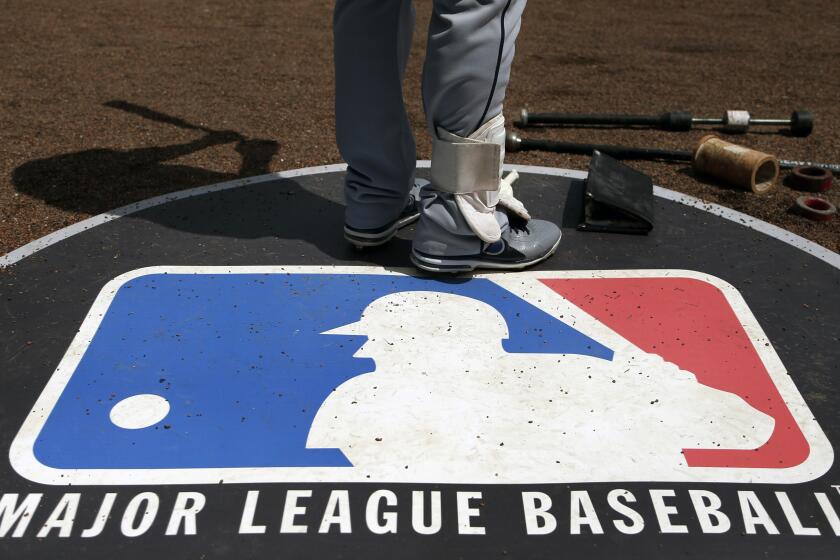State agency to Anaheim: Angel Stadium sale might violate California law

The agreement in which the city of Anaheim sold Angel Stadium and the surrounding parking lots to a company affiliated with Angels owner Arte Moreno “may be in violation” of state law, a state agency has warned the city.
No violation has been determined, and any such violation would not necessarily kill the deal. However, Anaheim could be subject to financial penalties steep enough that the city might make less than $2 for every $10 of fair-market value on the 150-acre property.
In an April 28 letter to the city obtained by The Los Angeles Times, the California Department of Housing and Community Development indicated Anaheim failed to comply with a state law requiring the city to solicit bids from affordable housing developers before offering a property to other parties.
In a June 14 reply, also obtained by The Times, the city said the law had not taken effect before the city entered into exclusive negotiations with Moreno’s company. HCD said any exclusive negotiating agreement was neither written nor binding by the required date.
A city-commissioned appraisal valued the property at up to $500 million. The sale price was $150 million in cash and another $170 million in credits.
In any case, the city said, the intent of the law — that 15% of housing units in any affected development be classified as affordable — is met under the development agreement between Anaheim and Moreno’s company. The city asked HCD to “make a final and formal determination” that the sale is in compliance with the law.
Jose Moreno, one of two council members who voted against the sale, said he was “upset” that the city manager first informed the entire council of the news in an email after The Times broke the story Thursday. He said he hoped the council would discuss the issue publicly and consider seeking accelerated construction of affordable housing units within the project and/or units beyond the 466 currently stipulated in the sale agreement.
Lauren Gold, an Anaheim spokeswoman, said the project as currently planned would represent “the largest expansion of affordable housing in our city’s history.”
She added: “This preliminary response [to HCD] is a chance for us to share why this project is unique and how it prioritizes affordable housing. A positive conversation with our state partners is underway, and we look forward to addressing concerns and moving forward.”
Said Marie Garvey, a spokeswoman for Arte Moreno’s company: “From the beginning, the city made it clear that no sale would happen without a significant commitment to affordable housing and parkland.”
Sasha Wisostky Kergan, the HCD official who signed the warning letter to the city, said Thursday that her agency is “reviewing the city’s response and has not yet determined whether the information provided is sufficient to resolve the concerns.”
In 2019, the city agreed to sell the property to Arte Moreno’s development company for a price later finalized at $320 million. Under the deal, the Angels would play in Anaheim through at least 2050, with Moreno’s company building a neighborhood around a new or renovated stadium.
In 2020, the city agreed to lower the cash price to $150 million, with the remaining $170 million credited toward the inclusion of affordable housing and parkland within the development.
Under state law, Kergan said Anaheim could be assessed a penalty of 30% of the sale price. Based on the $150-million cash figure, Anaheim would be left with $105 million. Based on the $320-million total figure, Anaheim would be left with $54 million in cash.
Gold declined to say whether the city could afford to proceed with the project if a penalty were assessed.
The property could have been worth as much as $500 million on the open market, according to a city-commissioned appraisal, with the stadium demolished and the land vacant. The City Council prioritized keeping the Angels over an open bidding process, and in so doing reinstated a lease that allowed the Angels to control development on the property through 2038.
The Supreme Court’s ruling against the NCAA on Monday might put Major League Baseball’s antitrust exemption on shaky legal footing.
With the stadium in place and the Angels holding veto power over certain uses of the property, according to the appraisal, $320 million represented a reasonable market value.
The city of San Diego received a similar letter from HCD with regard to a development proposal for a site now occupied by a sports arena, and that city last week chose to start a new bidding process for the property to ensure compliance with the law. However, when a community group alleged the city of Inglewood violated the law by negotiating with the Clippers for a new arena instead of first considering affordable housing developers, the group lost in court.
The city of Anaheim also has been sued over the Angel Stadium deal by a community group, which seeks to nullify the deal on the grounds the city failed to comply with public transparency laws during negotiations. A trial is scheduled to start Sept. 10 in Orange County Superior Court.
More to Read
Go beyond the scoreboard
Get the latest on L.A.'s teams in the daily Sports Report newsletter.
You may occasionally receive promotional content from the Los Angeles Times.








